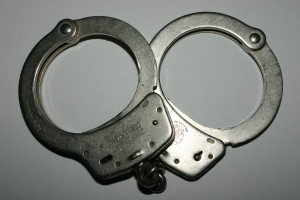By Ashley Escoe
Today, in the criminal case of U.S. v. Bridgers, in an unpublished per curiam opinion, the Fourth Circuit held that any errors during Morris Edward Bridgers’ plea colloquy were harmless and that Bridgers waived his right to appeal his sentence.
Bridgers’ Guilty Plea at the Trial Court
Bridgers pled guilty to violating 21 U.S.C. §§ 841(a)(1), (b)(1)(A), and 846 (2012): conspiracy to distribute heroin and possess heroin with intent to distribute. He was convicted and received a 200 month sentence. Bridgers alleged that the district court’s Fed. R. Crim. P. 11 hearing was inadequate and also that the district court’s explanation of his sentence was insufficient.
Plea Colloquy and Standard of Review
According to Fed. R. Crim. P. 11(b)(1), the trial court must conduct a plea colloquy to inform the defendant of, and make sure he understands, the nature of the charge to which he is pleading guilty, the minimum and maximum penalty he faces, and various rights he is surrendering by pleading guilty. The Court gives deference to the trial court’s decision and reviews the plea colloquy for plain error. U.S. v. General.
Any Omissions During the Plea Colloquy were Harmless Error
The Fourth Circuit affirmed Bridgers’ conviction for three reasons. First, the Fourth Circuit concluded that any omissions by the district court during the plea colloquy did not affect Bridgers’ substantial rights, because some of that information was in the written plea agreement Bridgers signed. Second, the Fourth Circuit decided that it was harmless for the district court to fail to advice Bridgers that it must order restitution, because Bridgers was informed he faced a maximum fine of $10,000,000. And finally, the Fourth Circuit determined that district court’s failure to explain the supervised release was harmless because Bridgers did not receive his potential maximum sentence.
Appellate Waiver and Standard of Review
If a defendant knowingly and intelligently waives his right to appeal, and then raises an issue for appeal that falls within the scope of the waiver, the Fourth Circuit will uphold the waiver. U.S. v Copeland. The Circuit court considers the totality of the circumstances when deciding whether the defendant knowingly and intelligently waived an appeal. U.S. v. General. The Court reviews the legitimacy of an appellate waiver de novo. U.S. v. Manigan.
Bridgers Knowingly and Intelligently Agreed to an Appellate Waiver
The Fourth Circuit concluded that Bridgers knowingly and voluntarily waived his right to appeal. The district court specifically discussed the waiver in the terms of the agreement to which Bridgers agreed. The language of the waiver is clear and unambiguous, and Bridgers confirmed that he could read and understand English and had opportunity to consult with his attorney.
Conviction Affirmed; Appeal Denied
The Fourth Circuit affirmed Bridgers’ conviction and dismissed the appeal of his sentence.






